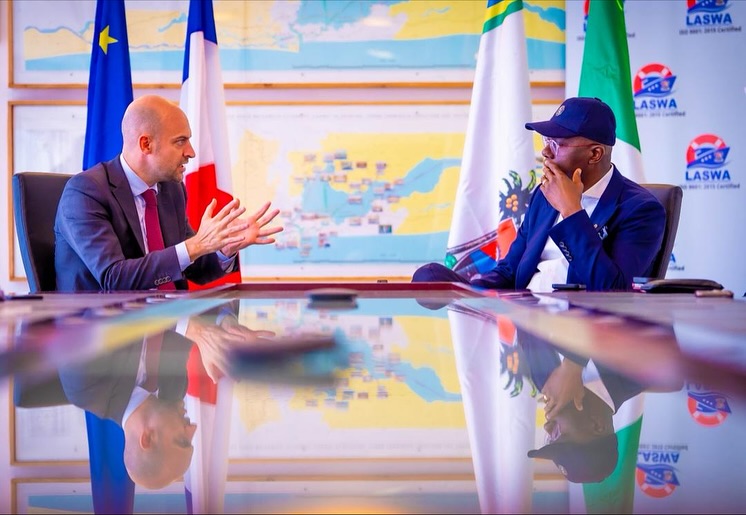During a working visit to Lagos, France’s Minister for Europe and Foreign Affairs, Jean-Noël Barrot, spoke with Arise News about what he described as “a new moment of purpose” in France–Nigeria relations. The backdrop was symbolic: the restless Lagos lagoon, dotted with ferries, fishing boats and endless human motion, an image of both pressure and possibility in Africa’s largest city. It was here that Barrot outlined France’s growing interest in Nigeria as a central partner in shaping the future of global governance, climate action and economic transformation.
He reflected on France’s recent diplomatic activities at the United Nations, including the historic treaty to protect the high seas and the overwhelming support for a framework toward a two-state solution in Gaza. According to him, France wants Nigeria not on the sidelines of such conversations, but firmly at the table. “Nigeria is the largest country in Africa. We believe its voice should carry more weight in solving global challenges,” he said, noting that both President Emmanuel Macron and President Bola Tinubu have agreed to pursue a partnership based on equality and shared strategic interests.
Barrot stressed that the partnership would not live in communiqués or conference halls alone, but in projects that touch the lives of ordinary Nigerians. He pointed to France’s support for the ambitious OMO water transport initiative in Lagos, which he described as one of the most visible outcomes of the collaboration so far. With 75 electric powered boats planned to operate on 15 new routes spanning 140 kilometers, the project aims to shorten daily commutes, cut transport costs and ease Lagos’ notorious gridlock by moving as many as 100,000 commuters off congested roads and onto the waterways. For a city built around water, Barrot said it was time to treat the lagoon “not as a boundary, but as an opportunity.”
The foreign minister also highlighted cultural and educational ties that continue to deepen the relationship. He celebrated the opening of the largest exhibition ever mounted on Fela Anikulapo-Kuti, brought to Lagos with French support and described it as a cultural bridge between both nations and a tribute to a global artist whose music, spirit and activism transcend borders.
In education, he referenced the renovation of the Lycée Français in Lagos, now serving more than 500 Nigerian and French students with upgraded learning facilities. In the creative economy, he praised the upcoming Création Africa Forum, which will bring together innovators from 42 African countries, including 80 leading Nigerian creatives in animation, gaming, fashion, film and digital design, to scale their work through international partnerships.
The conversation later shifted to geopolitics and Africa’s long-standing demand for permanent representation on the United Nations Security Council. Barrot said France’s position is clear and unwavering, affirming that Africa deserves two permanent seats with full powers, and that Nigeria is viewed as a natural front runner for one of them. He expressed hope that the long-awaited reform could finally materialize in 2026, arguing that the UN cannot claim legitimacy in the 21st century while the continent with the world’s fastest-growing population remains excluded from its highest decision-making circle.
As Barrot prepared to depart Lagos for Paris, his closing remarks underscored France’s long-term view: a relationship driven not by aid or sentiment, but by mutual interest, shared democratic values and joint ambition. From the waterways of Lagos to the diplomacy of New York, he said France sees Nigeria as a partner in building a more balanced, resilient and inclusive world. With new cultural exchanges, diplomatic alignment and infrastructure investments underway, the France–Nigeria story appears to be entering a practical and people-focused chapter that could define a new era of cooperation between Europe and Africa.










